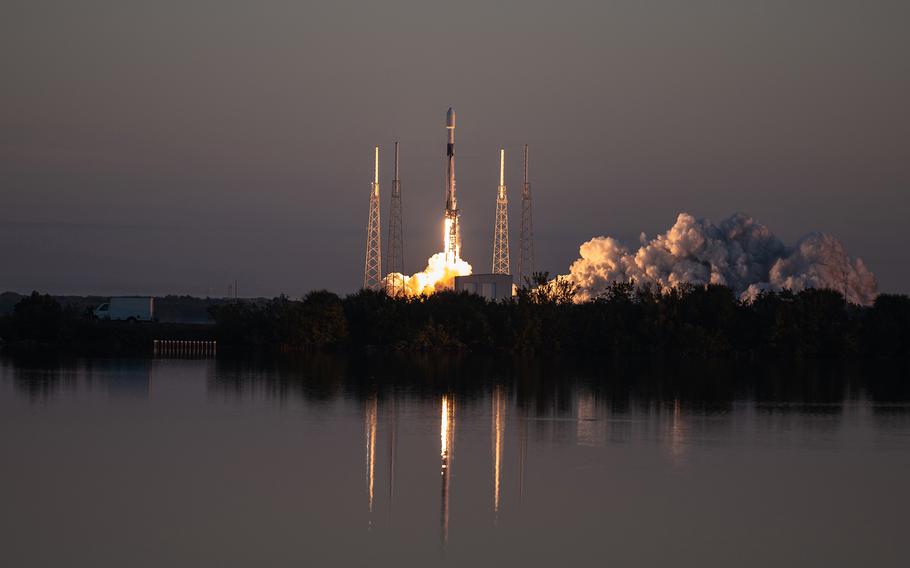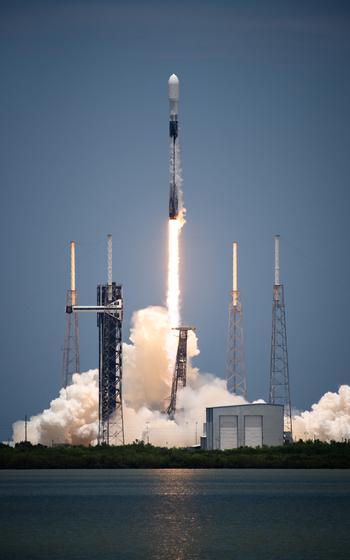
A SpaceX Falcon 9 rocket carrying the GPS III SV06 satellite lifts off from Cape Canaveral Space Force Station, Fla., on Jan. 18, 2023. The Defense Department is struggling to bill commercial space companies for launches from government facilities and may be losing out on millions of dollars as a result, according to a recent report by the Government Accountability Office. (Thomas Sjoberg/U.S. Space Force)
The Defense Department must do a better job of recouping costs from companies that use its facilities to launch satellites into space, a congressional watchdog agency said in a recent report.
Inability to calculate all the costs involved in private-sector use of federal space sites is a concern amid the infrastructure strain from ballooning use, the Government Accountability Office said in a report last week.
“As a result, DOD may be missing opportunities to collect millions of dollars that could support infrastructure improvements,” the GAO said.
The number of commercial satellite launches from federal sites has quadrupled from 32 to 132 since 2021, according to the June 30 report.
In the face of that increase, the Defense Department has struggled to bill companies accurately for direct costs of launches at federal facilities, and it still lacks clear collection and reimbursement guidance for support services including maintenance, operations and upgrades, the report found.
Private industry has taken on a greater share of launch duties in recent years. The Pentagon uses commercial businesses to launch military satellites, but the companies often have their own commercial needs, the report said.
The major players at the moment are Elon Musk’s aerospace company SpaceX, Amazon founder Jeff Bezos’ company Blue Origin and a joint venture between Boeing and Lockheed Martin called United Launch Alliance.
The three companies received a contract award of $13.7 billion in April for 54 launches, with the lion’s share going to SpaceX, the report said.
Federal government contracts with SpaceX total $22 billion, Reuters reported earlier this month.

A SpaceX Falcon 9 rocket carrying the eighth GPS III satellite lifts off from Cape Canaveral Space Force Station, Florida, on May 30, 2025. The Defense Department is struggling to bill commercial space companies for launches from government facilities, according to a recent report by the Government Accountability Office. (Robert Mason/U.S. Space Force)
Facilities involved in the GAO review were Cape Canaveral Space Force Station in Florida, Vandenberg Space Force Base in California and Wallops Flight Facility in Virginia.
The agency said it looked at Space Force acquisition strategy and contract documentation and interviewed stakeholders from the military and private sector.
Among the findings, auditors learned that SpaceX and United Launch Alliance were not billed at all for high-pressure water production at the launch pads in fiscal year 2021 and were billed for only about half of the $2 million spent to store rockets and boosters.
The review recommended that the Space Force work with the Office of the Under Secretary of Defense Comptroller to update cost regulations and reimbursement processes.
The GAO also instructed the Space Force to centralize planning for launches and scheduling so things like spy satellites and missile warning systems can be fired into space faster and more efficiently.